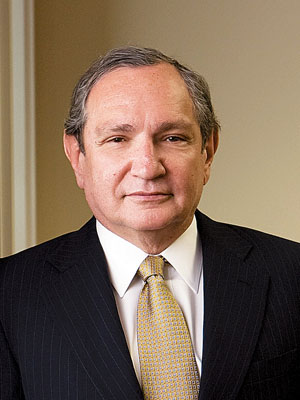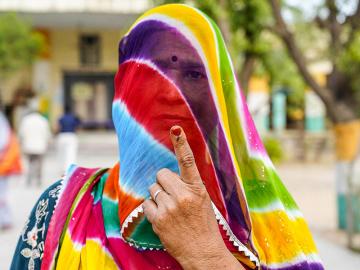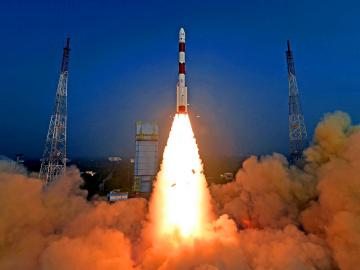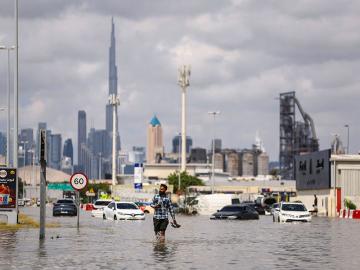
George Friedman: Libya Is an Indulgence by the Political Classes
George Friedman, CEO and founder of global intelligence firm STRATFOR, explains US policy on the Middle East and North Africa to Forbes India
In most conflicts, armies ask “What’s plan B?” In Libya they don’t even have a plan A.
It’s a state of mass confusion. The opposition is not in any sense a coherent opposition. The Europeans and the Americans appear to have very different ideas of what it is they are trying to achieve. Some say it is about protecting innocent lives, others say it is about removing Gadaffi. And third the amount of military force being brought over there is completely insufficient to achieve the goal. Airpower is a way to appear to be doing something when actually you are not being very effective. You can’t overwhelm the Gadaffi government. It’s unclear if anyone has a fair idea. It’s not an intervention but a political gesture with bombs.
What do you see as the larger political motive for the West’s stand on Libya?
I don’t think there is a larger political movement. This is a country of 6 million people, it is not a particularly significant country. It has some oil which is not trivial but it is not one of the world’s major oil producers. To a great extent, I regard this war as an indulgence by the political classes. There was a desire to appear to be effective to doing some good. No one is prepared to put in the resources that is necessary to do this.
The Arab League has asked the West to move against Libya but the situation in Bahrain is the same and the response very different?
The United States uses Bahrain as a base for its 5th fleet. This is the American fleet in the Persian Gulf. The United States wants to retain that fleet. The United States was clearly not unhappy to see the Saudis come in and put down the rising. Will the rising remain suppressed? At this point there is every indication that the rising is over. There’s nothing going on to indicate that there is any organised resistance. This is about Saudi Arabia facing Iran and the United States approved what the Saudis did. The view is that the United States is the prime mover in all these cases, it can be but this is a situation where countries like Saudi Arabia and Iran are much more significant.
How will these conflicts affect Iran?
The US is in the process of withdrawing from Iraq. After the US withdraws, Iran is the major political power in the region regardless of whether it gets nuclear weapons or not. It has a substantial army. So with the US withdrawing, the balance of power in the Persian Gulf is tilting to Iran. Iran has a number of tools to assert itself and one of the major tools is the Shiite population on the Western side of the Persian Gulf. It will be exploited by Iran. Should the Shiites take power in Bahrain, it could trigger unrest among the Shiites in Saudi Arabia. It would represent a fundamental change in the power order in the region. But that change is taking place anyway.
Right now, it has to choose between the Iranians and the House of Saud. And in the end the Americans want oil to come out from the Persian Gulf and the Iranians want to sell oil. The real debate is between Saudi Arabia and Iran as to who will get the most money from this trade and in the end it will be the United States who will decide the answer to this question.
How much of the MENA conflict is a push for democracy and how much is local sectarian conflict? Is the rest of the World reading it right?
What you have to keep in mind is that is that what’s happening in Libya and Bahrain doesn’t have anything to do with democracy. It has to do with internal struggles. The difference being that the outcome of the Libyan struggle affects no one while the Bahrain struggle and other struggles in the Persian Gulf will affect the entire world. In Egypt it was the military that wanted Mubarak out.
It was a quantum of generals that wanted him out. One of the reasons we got the impression of the great rise of democracy was because of the media. Particularly TV. Clearly we can see now Tunisia has nothing to do with democracy. Certainly Libya is not about democracy, it is about tribal warfare. Bahrain, you have a movement for a new majority which can be called democratic but it is not a liberal democracy. It is likely that the Shiites in Bahrain want to introduce a parliamentary democracy. The entire narrative of the region has been based on profound misconceptions on what is going on. This cannot be understood as a massive movement in democracy.
When do you see this war getting over in Libya?
All wars end but this one is not clear how it ends. The people in the East are much weaker. Gadaffi is much stronger than what the Europeans thought. The Easterners can’t surrender to Gadaffi because he’ll slaughter them, Gadaffi can’t surrender to the West because they will arrest him. This is the sort of thing that could go on for a long time without any conclusion.
How significant is the denial of the UK to grant asylum to Moussa Koussa?
The problem with defection at this point in Libya are the international tribunals. It is impossible to negotiate an end to a war in Libya. In the past 42 years, all of the leaders in the government have committed some crimes under international law. Anybody who would defect would immediately be subject to the International Criminal Court. It makes much more sense for Gadaffi and his followers to fight to the end. One of the things that will prolong the war in Libya and other places is that anyone who defects is likely to be put on trial. That is why Gadaffi is so strong.
What is the sort of power shift that we’ll see in the region?
It’ll be the rising power of Iran. The important question is whether the United States will resist the Iranians or make a deal with them? What is happening in North Africa is generally unimportant and has been made too much of. The most important activity is happening in the Persian Gulf that is about Iran. As of internally, I don’t see the sudden blossoming of European style democracy in the Middle East. You may have a regime change but the new regimes will not behave fundamentally different from the old ones.
Is America worried about its diminishing stature in the world?
The United States is one quarter of the world economy. The United States controls all of the oceans of the world and with increased international trade means that the country that controls the oceans will remain very powerful. The Bric countries together have a GDP of $8.4 trillion while the United States has a GDP of about $14.4 trillion. There is some sort of illusion of the United States becoming much weaker and most of it is that people don’t like what the United States does. But power has very little to do with public opinion. I see a decline in American popularity but not in power.
What do you make of Europe’s role in the conflict?
It is very interesting that in Libya, even though the European nations were the ones that wanted to go in, they were incapable of going in unless the Americans came in. the Europeans don’t have the resources to do it themselves. The United States is in Libya because it wants to maintain its leadership and wants to make it clear to countries like France that it cannot do anything unless the United States is willing to help. So this is a very interesting lesson to the Europeans. Some Europeans decided that they wanted to do something in Libya. The United States can extricate itself anytime it wants. It will be very interesting to watch the Europeans who have lectured the United States so many times on how not to get involved in these situations on what they are going to do now.
Also of enormous importance is the split between France and Germany. In this case the Germans sided with the Russians against France. What happens to the Europeans? They have been unable to put together a coherent policy on any number of issues for quite a while and on Libya simply fell apart.
(This story appears in the 22 April, 2011 issue of Forbes India. To visit our Archives, click here.)















